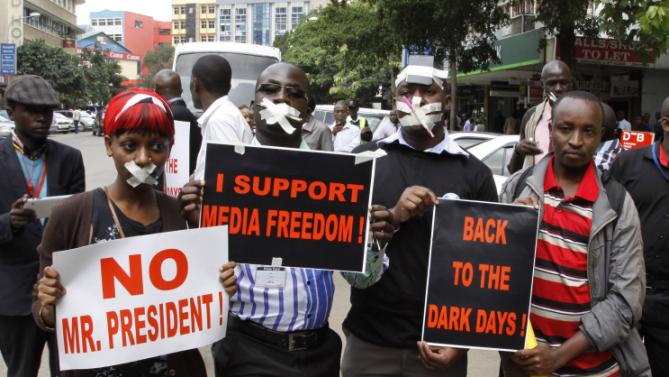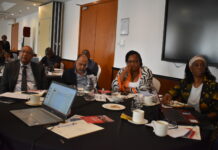
By Winnie Kamau – Data Journalist
Recently, journalists from the Standard, the Nation and the Star were summoned by the security agencies to show cause why they should not be prosecuted for what Interior Cabinet Secretary General (rtd) Joseph Nkaissery claimed was a breach of confidentiality which exposed the country’s security forces to ‘significant risk’. Nkaissery went ahead and orchestrated a dramatic arrest of one of the journalist’s John Ngirachu, an action which promptly set the twitterati off making the ‘ #FreeNgirachu’ campaign trend.
But what, you may ask, was the unforgivable crime that the journalists’ had committed?
They had simply gone through the voluminous report submitted by the Auditor General Edward Ouko who raised questions about the Sh3.85 billion reportedly spent on the purchase of unspecified security equipment. The only thing he could confirm is that the money was paid out to 12 different companies who ‘supplied’ the government with ‘various classified security items in the 2014/15 financial year.
The incident reminded me of a Journalist Data Training I attended where we were having an in depth look at the Auditor General’s report. What we found from looking at the report closely was the endemic and systematic waste that government agencies and departments engage in without a thought for the long-suffering taxpayer. For example, it was depressing to see how Kisumu County had taken a loan of Sh13 million from a commercial bank, not for health or any development purpose, but to finance foreign trips for the county government! This report and many others, are the kind of #OpenData information that citizens should and must be able to access if they are to understand and participate in contributing to how they are governed and how their money is being spent.
Kenya is a trailblazer in Africa so to speak and has led Africa in the forefront in Open Data. The first country to develop and Open Data Initiative Portal that hosts hundreds of datasets. Other countries such as Tanzania, Ghana, Nigeria, Burkina Faso have emulated Kenya and have set up their own open data portals.
Kenya recently held the National Data Forum that brought together different stakeholders to discuss the gains of open data. As an active member of the Open Government Partnership, Kenya participated in the OGP forum held in Mexico in September and will be hosting the first ever World Data Forum to be held in Africa in September 2016 confirmed by Foreign Affairs Cabinet Secretary Amina Mohammed. Kenya is also scheduled to host the second Africa Open Data Conference following the first successful conference held in Dar es Salaam, Tanzania in September 2015.
It is against this backdrop that the arbitrary arrests of journalists using available data to inform, educate and empower the public should be viewed. That government officials can, with impunity, abuse their authority and position to attempt to punish journalists for doing their work raises concerns about whether this government is really committed to open data. It is of special concern to data journalists like myself who work as freelancers. Who will bail us out or even speak for us when we use the publicly available data to generate content?
The attempted arrest of Ngirachu and his colleagues from the main media houses has served to dampen the enthusiasm of those of us who do not have access to the kind of legal, professional and other support systems. It means that a correspondent or freelancer who uses data to enhance and add nuance to their reporting is taking unmeasurable risks. It also means that the ‘arrests’ and harassments meted out to Ngirachu and his colleagues will force many to self-censorship for fear of repercussions.
There are many Nkaissery’s who are in government and are yet to realise that the gains made so far by Kenya on the road to #Opendata is unstoppable. Those journalists working with and using data to tell stories that matter to people should not waver and should continue to execute their responsibilities without fear. After all, the Nkaissery’s of this world may go but Open Data is here to stay.













